第133章
Great mortality takes place amongst the poor captive children on their arrival at Ega.It is a singular circumstance that the Indians residing on the Japura and other tributaries always fall ill on descending to the Solimoens, while the reverse takes place with the inhabitants of the banks of the main river, who never fail of taking intermittent fever when they first ascend these branch rivers, and of getting well when they return.The finest tribes of savages who inhabit the country near Ega are the Juris and Passes-- these are now, however, nearly extinct, a few families only remaining on the banks of the retired creeks connected with the Teffe, and on other branch rivers between the Teffe and the Jutahi.They are a peaceable, gentle, and industrious people, devoted to agriculture and fishing, and have always been friendly to the whites.I shall have occasion to speak again of the Passes, who are a slenderly-built and superior race of Indians, distinguished by a large, square tattooed patch in the middle of their faces.The principal cause of their decay in numbers seems to be a disease which always appears amongst them when a village is visited by people from the civilised settlements--a slow fever, accompanied by the symptoms of a common cold, "defluxo," as the Brazilians term it, ending probably in consumption.The disorder has been known to break out when the visitors were entirely free from it-- the simple contact of civilised men, in some mysterious way, being sufficient to create it.It is generally fatal to the Juris and Passes; the first question the poor, patient Indians now put to an advancing canoe is, "Do you bring defluxo?"My assistant, Jose, in the last year of our residence at Ega, "resgatou" (ransomed, the euphemism in use for purchased) two Indian children, a boy and a girl, through a Japura trader.The boy was about twelve years of age, and of an unusually dark colour of skin-- he had, in fact, the tint of a Cafuzo, the offspring of Indian and negro.It was thought he had belonged to some perfectly wild and houseless tribe, similar to the Pararauates of the Tapajos, of which there are several in different parts of the interior of South America.His face was of regular, oval shape, but his glistening black eyes had a wary, distrustful expression, like that of a wild animal; his hands and feet were small and delicately formed.Soon after his arrival, finding that none of the Indian boys and girls in the houses of our neighbours understood his language, he became sulky and reserved; not a word could be got from him until many weeks afterwards, when he suddenly broke out with complete phrases of Portuguese.He was ill of swollen liver and spleen, the result of intermittent fever, for a long time after coming into our hands.
We found it difficult to cure him, owing to his almost invincible habit of eating earth, baked clay, pitch, wax, and other similar substances.Very many children on the upper parts of the Amazons have this strange habit; not only Indians, but negroes and whites.It is not, therefore, peculiar to the famous Otomacs of the Orinoco, described by Humboldt,or to Indians at all, and seems to originate in a morbid craving, the result of a meagre diet of fish, wild-fruits, and mandioca-meal.We gave our little savage the name of Sebastian.
The use of these Indian children is to fill water-jars from the river, gather firewood in the forest, cook, assist in paddling the montaria in excursions, and so forth.Sebastian was often my companion in the woods, where he was very useful in finding the small birds I shot, which sometimes fell in the thickets amongst confused masses of fallen branches and dead leaves.He was wonderfully expert at catching lizards with his hands, and at climbing.The smoothest stems of palm trees offered little difficulty to him; he would gather a few lengths of tough, flexible lianas, tie them in a short, endless band to support his feet with, in embracing the slippery shaft, and then mount upwards by a succession of slight jerks.It was very amusing, during the first few weeks, to witness the glee and pride with which he would bring to me the bunches of fruit he had gathered from almost inaccessible trees.He avoided the company of boys of his own race, and was evidently proud of being the servant of a real white man.We brought him down with us to Para, but he showed no emotion at any of the strange sights of the capital--the steam-vessels, large ships and houses, horses and carriages, the pomp of church ceremonies, and so forth.In this he exhibited the usual dullness of feeling and poverty of thought of the Indian; he had, nevertheless, very keen perceptions, and was quick at learning any mechanical art.Jose, who had resumed, some time before I left the country, his old trade of goldsmith, made him his apprentice, and he made very rapid progress; for after about three months' teaching he came to me one day with radiant countenance and showed me a gold ring of his own making.